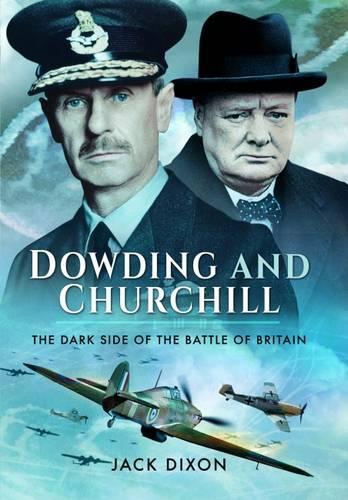
Dowding and Churchill: The Dark Side of the Battle of Britain
(Paperback)
Publishing Details
Dowding and Churchill: The Dark Side of the Battle of Britain
By (Author) Jack Dixon
Pen & Sword Books Ltd
Pen & Sword Aviation
30th January 2022
United Kingdom
Classifications
General
Non Fiction
Modern warfare
European history
Air forces and warfare
Specific battles
940.54211
Physical Properties
Paperback
320
Width 156mm, Height 234mm
Description
Air Chief Marshal Sir Hugh later Lord Dowding was one of the greatest Englishmen of the 20th century. He created Fighter Command with its unique early warning system (radar) from nothing in 1936 to the efficient defensive force it became in 1940. In consequence Fighter Command was the only arm that was properly prepared for battle when war was declared against Germany. Hugh Dowding led Fighter Command in the Battle of Britain, and was victorious. The campaign, although a series of defensive engagements, was one of the decisive battles of Western Civilization. The strategic importance of the Battle of Britain was recognized at the time, yet, the moment it was won Dowding was summarily relieved of his command and shuffled into retirement without recognition, reward or promotion. This book reveals that this was the result of a shabby conspiracy by fellow officers. The Air Ministry published a brief account of the Battle in March 1941 and in it there was no mention of Dowding. Churchill was furiously indignant. But in November 1940 he had acquiesced in Dowding's removal. Why And what are the factors that led to Dowding's dismissal in the first place In this thought-provoking and authoritative book Jack Dixon answers these questions and explains Dowding's true greatness. AUTHOR: Jack Dixon served as an armourer, then a pilot, in the Royal Air Force 1940 48 and RAFVR 1950 52. He read Modern Languages at Oxford and emigrated to Canada in 1952. After five years in the Royal Canadian Air Force he resigned and took up a lectureship in French Literature at the University of Winnipeg where he taught until 1990. 24 b/w plates
Author Bio
Jack Dixon served as an armourer, then a pilot, in the Royal Air Force 1940 - 48 and RAFVR 1950 - 52. He read Modern Languages at Oxford and emigrated to Canada in 1952. After five years in the Royal Canadian Air Force he resigned and took up a lectureship in French Literature at the University of Winnipeg where he taught until 1990. He lives on Vancouver Island.
